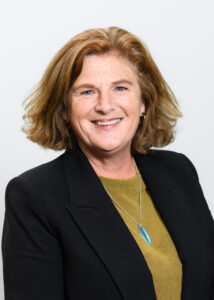From 2024, an online competency test will replace a time-consuming quest for qualifications, an in-person clinical exam will be required and all IQNs will be obliged to learn about cultural competency before they can work in Aotearoa New Zealand.
The moves are part of a raft of changes announced by the Nursing Council this week, intended to speed up registration and employment of overseas-trained nurses in New Zealand, while preserving public safety, chief executive Catherine Byrne said.

Byrne said the online test would test nurses’ conceptual and theoretical knowledge, while the learning module would cover nursing in Aotearoa New Zealand, including te Tiriti o Waitangi, cultural safety and kawa whakaruruhau. The clinical exam would be an objective structured clinical examination (OSCE) which requires practical demonstrations in a range of scenarios.
“We must ensure that moving to a new model does not affect the current flow of IQNs into Aotearoa New Zealand.”
The changes would reduce unnecessary barriers to IQNs working in New Zealand, while preserving public safety and reflecting the same modern regulatory practices as seen in Australia and the United Kingdom, Byrne said.
“Requiring all nurses to complete a learning module also helps ensure that from day one they understand the unique environment, culture and expectations of nursing in Aotearoa New Zealand — including our specific approach to concepts such as cultural safety.”
Enrolled nurse pathway
A clear pathway for IQNs to register as enrolled nurses would also be introduced by 2024, she said.
The online test would be a variant of the council’s current state final examination, which all New Zealand-qualified nurses are required to sit before registering, Byrne said.
Direct competence assessments meant there would be less documentation of education and employment history required. The current requirement that IQNs must have practised for at least two years, has been dropped to one — after pushback to the council’s proposal to welcome new graduates with no practical work experience.
“Rather than requiring a minimum number of recent practice hours, we will only be asking nurses to have practised for at least a year after gaining their initial qualifications,” Byrne said.
The new model would also spell an end for competency assessment programmes (CAPs) — costly 10-week courses required by about a third of IQNs.
However, recent research showed some of the “pastoral care and orientation” aspects of CAPs were highly valued by nurses, and the council was keen to maintain these. “We will be exploring how we can preserve these under the new model and engaging with current CAP providers about this,” she said. “This could involve supporting orientation programmes for new nurses that extend their knowledge in areas such as te ao Māori, and working . . . to develop guidance for organisations which employ IQNs.”
Fast-track entry for some countries
“Expedited” pathways for IQNs from countries with similar registration and education standards would be implemented under the new model, exempting those nurses from some assessments. That would initially involve Canada, Ireland, Singapore, the United Kingdom and the United States, but “may expand over time”. However, all IQNs would be required to complete the education module involving cultural competency, Byrne said.
The council was also talking to Pacific nursing leaders about expediting pathways for nurses from some Pacific countries.
The council would be finalising details over the next 15 months — a time-frame Byrne said was necessary to ensure minimal disruption for nurses, employers and the health system. She appreciated current workforce pressures, but warned “rushed” changes could risk the flow of IQNs into the country, patient safety and public confidence.
“We must ensure that moving to a new model does not affect the current flow of IQNs into Aotearoa New Zealand.”
A target date of the beginning of 2024 “allows us to balance all these factors while still moving at pace to the new model”.
“Requiring all nurses to complete a learning module also helps ensure that from day one they understand the unique environment, culture and expectations of nursing in Aotearoa New Zealand.”
The council consulted on its proposed changes in April and May, receiving over 400 submissions — the largest response it had ever received. Of respondents, 75 per cent were in favour of the proposed changes.
IQNs in 2022 make up about 32 per cent of the nursing workforce, up from 25 per cent in 2011. Byrne said it was important to acknowledge the role of IQNs, who had always been an important part of the workforce in New Zealand. Rapid growth of the IQN workforce sparked a review of its overseas registration processes in 2017, which was interrupted by COVID, Byrne said.
Last month, the council announced it was easing its written English requirements for IQNs, in a bid to reduce unnecessary barriers amid New Zealand’s nursing shortage.
Byrne told Kaitiaki delivery of the OSCE would likely be contracted out, while the online exam would be managed by the Nursing Council.
“We are confident this new model will preserve public safety, which is our core statutory role, and reflects modern good practice in regulation,” Byrne said.





